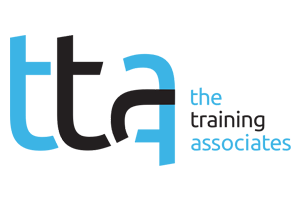The Bureau of Labor Statistics recently reported that 140,000 people lost their jobs in December, many of them women. While these numbers aren’t as large as previous months — 865,000 women dropped out of the labor force in September, compared to 235,000 men — they reflect a devastating trend caused by COVID-19: the highest unemployment rates since the Great Depression.
Looking back on 2020, and looking forward to nascent employment trends for 2021, several factors can give us hope for an uptick in learning and career growth. For many impacted by last year’s furloughs and closures, the new year brings the potential not only for new jobs but for entirely new careers — and online learning is part of those trajectories.
Online Learning Acceleration
The pandemic brought online learning out of the shadows and into the spotlight. What started as a crisis response has become standard for many schools. And, with its head start in leveraging online courses for micro-credentials and certification, the corporate sector also experienced a rise in online learning.
Increasingly, in 2020, people who lost their jobs turned to online training as a way to gain skills and start new careers. This trend of online training as a way to reskill and return to work will continue for years to come, especially as many people are looking for ways to pay their bills or leave multiple low-paying jobs behind for more stable careers.
Restoring Work-life Balance
In March 2020, Gartner reported that 88% of organizations worldwide encouraged their employees to work from home or made it mandatory to do so after COVID-19 was declared a pandemic. This shift to remote work blurred the lines between work and home life, and many people struggled to set boundaries and create new routines.
Many parents took on new responsibilities to guide their children’s education and work multiple jobs. And while having multiple revenue sources can be good, when people have to work many jobs to make ends meet, they are often left feeling drained and cannot see a path to career growth. That feeling is one powerful driver for people seeking online training as a way to gain skills for a more fulfilling career.
The coming months will likely bring a continuing focus on and conversations about restoring work-life balance. There will be many people who lost several jobs and are being intentional as they look to create one new career. Interest levels will rise in sectors that offer career growth, and employers in these areas will seek out candidates who are qualified and can demonstrate their skills through online training and certification program participation.
Hiring Will Recover
Economists predict that it will take time to recover from the impacts of the pandemic. However, there are industries showing signs of recovery, offering a wide range of job opportunities. Health care, like most industries, was impacted by the pandemic, but it has shown month-over-month job gains, according to the Bureau of Labor Statistics. This industry offers many different avenues to employment.
In the last year, more learners have enrolled in massive online open courses (MOOCs) and other training programs to brush up on skills or learn new ones. Some training companies have reported increased learner interest and expanded hiring and externship partner networks in 2020. These networks exist to connect hiring organizations to qualified professionals, helping them fill in-demand roles. While unemployment numbers continue to break records, some sectors, like health care, are hiring. The coming year will see even more people reskilling through online training to gain employment.
Training Programs Will Expand the Personalized Learner Experience
With more people going through online training programs, organizations will seek to stand out by tailoring the learning experience, helping people with everything from selecting programs to preparing for jobs. Gone are the days when employment resources were supported by one overworked person.
Organizations will continue to enhance curated learning experiences from the time of program enrollment through the exam process and preparation for certifications, all the way through externship and employment support. The flexibility and personalization offered by online training programs means people will have more opportunities to gain new skills in the coming year. Increasing numbers of employers see that training as viable and valuable for their employees’ growth.


